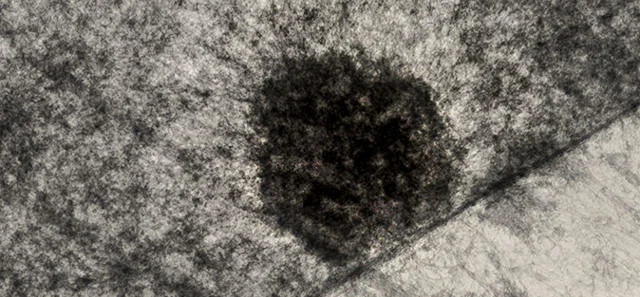An Interview with Karen Montgomery
Photo by Genevieve Russell (storyportraitmedia.com)
What is your plan to continue your career after working in the stem cell field in Madison WI for such a long time? I established Karen Dyer Montgomery Genetic Consultants, LLC, in 2018, with the goal of merging my training in basic biology, my clinical lab experience and my expertise in assaying genetic changes in human pluripotent stem cell cultures to advise researchers who propose clinical use of stem cells.
Tell us about your work in Madison. I was the founding director of WiCell Research Institute’s Cytogenetics Lab in Madison WI from 2006–2018. This lab was established to support the US National Stem Cell Bank; under my leadership, it developed into a highly regarded global testing service for the genetic characterization of human and mouse embryonic and pluripotent stem cell cultures. The lab analyzed thousands of stem cell lines for chromosome and microarray variants. We collaborated on seven publications and four posters and participated in the International Stem Cell Initiative (see publications list). As a member of the Pathology Department at UW–Madison, I maintained the responsibility for IRB and SCRO oversight at WiCell.
What about global presence? Are you active in spreading the word about the impact of genetic changes in stem cells in culture? I have presented at three international conferences, most recently at the 2018 Asia Pacific Chromosome Conference, with my talk entitled “Chromosomes unbalanced: Aneuploidy, deletions, and duplications in pluripotent stem cells.” I was part of a panel discussion regarding quality control and genetic testing at the World Stem Cell Summit in San Antonio.
It seems like you have a very diverse scientific background that led to your current path. I came to WiCell with a background as a director of clinical cytogenetics, overseeing small academic (e.g., University of New Mexico) and large commercial (e.g., Genzyme Genetics) settings, guiding labs in maintaining CAP and CLIA certifications, and communicating results of patient testing for genetic disorders. I participated in Children’s Oncology Group (COG) clinical trial research and brought the UNM Cytogenetics Lab into COG membership. On the road to becoming a cytogeneticist, I worked as a research associate in the lab of Stan Gartler in the Department of Genome Sciences at the University of Washington. Our basic research on the compartmentalization of the inactive X chromosome resulted in several papers and beautiful images published in major textbooks. Using very early gene mapping techniques, we localized the plasminogen gene to 6q26-q27, and the human factor IX gene to Xq27-qter. I also worked as a staff scientist at the Fred Hutchinson Cancer Research Center, mapping NEUROD2 and NEUROD3 genes and developing FISH probes to sequences related to cervical cancer.
What about teaching and support for students? As an academician, I taught courses in biology, genetics, and medical genetics. At the University of New Mexico, I developed and had responsibility for the Pathology Department’s medical resident training in clinical molecular pathology. My interest in education and support of technologists has continued, from the publication of two technical chapters on molecular cytogenetics in the AGT Cytogenetics Laboratory Manuals to judging the ASHG DNA Day essay contest in 2019. While in Madison, I was on the board of the biotech training program at the Madison Area Technical College.
Are you a member of any professional groups? I am a member of the American Society of Human Genetics, the American Cytogenomics Conference, and the International Society for Stem Cell Research. I’m a founding fellow of the American College of Medical Genetics.
Do you have clinical credentialing? I’m a member of the American College of Medical Genetics, certified in Clinical Cytogenetics by the American Board of Medical Genetics, with access to and an understanding of resources developed for clinical cytogenetic testing.
Tell us a little about your graduate schooling. My PhD is in Biological Sciences from Kent State University, where I also did my undergraduate work. My thesis, specializing in host–parasite developmental interactions, was my entry into basic science.
How do you keep in touch with science in general and stem cells specifically? I keep up with rapid advances in stem cell science by attending conferences and webinars, and I maintain an extensive reading list (attached). Nature Briefing is a great posting for current science in general. Stem Cell Technologies sends frequent reviews of new and interesting publications directly related to embryonic and induced pluripotent stem cells.
What do you do when you aren’t working? I live in Santa Fe NM, where my German Shepherd Dog Marco and I walk in the high desert open spaces. I love photography and am constantly teaching myself the latest in Adobe Lightroom. Passion for travel took me to Palestine and Israel before the pandemic. In 2019, I barged on the Canal du Midi in France with my younger daughter who lives in the Pyrenees and also got caught in a bomb cyclone in Nebraska while hoping to photograph migrating sandhill cranes. Keeping in touch with my daughters and granddaughter is a daily light.
Photo by Karen Dyer Montgomery (about this photo)
Photo by Karen Dyer Montgomery (about this photo)


